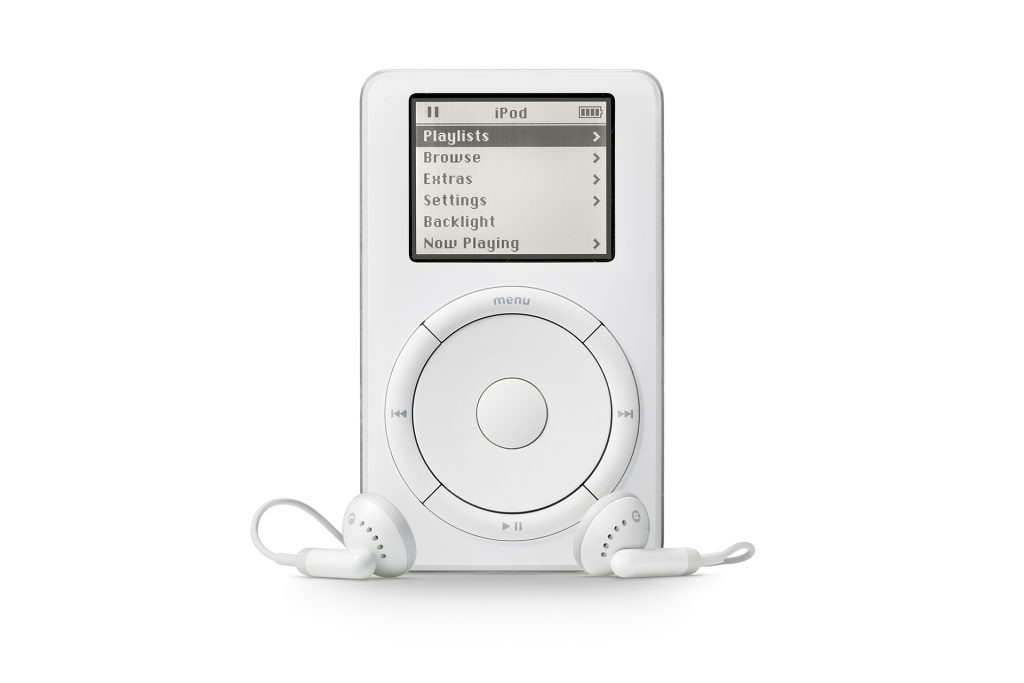Tony Fadell’s Book “Build” Celebrates Success and Failure
After 30+ years in Silicon Valley, this engineer and designer has plenty of tales and advice to share

Often referred to as the “Father of the iPod,” engineer and designer Tony Fadell has just released his first book, Build: An Unorthodox Guide to Making Things Worth Making. With 30+ years of experience in Silicon Valley and 300 patents to his name, Fadell has been part of epic successes—and failures—and this book is full of stories, insights and lessons related to them.

Fadell began his career at General Magic (a startup initially within Apple that nosedived in a spectacular manner). He went on to lead the teams that created the iPod and iPhone and is frequently credited as being a co-inventor of the latter. In 2010 he co-founded Nest Labs, a pioneer in the smart-home realm. After selling Nest Labs, Fadell has been running the investment firm Future Shape. Now, he’s releasing Build (available as an e-book, audiobook or hardcover) and sharing some of the most important tales, candid commentary and unorthodox advice from his time in tech.
It was at General Magic, in his early 20s, that Fadell had his first real experience with professional failure. This was mostly due to their handheld device (circa 1994) that preceded the ubiquitous tablets of today. “General Magic was really creating the iPhone about 15 years too early. You could download games—technically you could download games but it didn’t really work. You could book travel. It had email, wireless email, games, everything. It was done before the internet, before there was digital networks. You had dial up internet. It was handheld. And I got to do that at age 21 to 24 with my heroes who designed the Mac,” he says. “And, it was a tremendous failure. We spent over half a billion dollars in 1993/94… and it was an utter, abject failure.”
Ultimately, I got to do the iPhone 15 years later and take all those lessons learned and build on that
Though the team was defeated and the company went into liquidation, Fadell says it led to great things. Several staff members eventually went on to work on the Apple Watch, and one founded eBay. For Fadell, “It’s where I learned, through failure, about timing, asking why—how to ask why, not just what. You’ve got to understand how to make products about why people want them, not just making something that makes you feel good; you have to make something other people need and want,” he says. It’s those kinds of questions and insights that are within the pages of Build. For example, not only is it important to see failure as a lesson, but that with time, failure can be perceived as a success. “Ultimately, I got to do the iPhone 15 years later and take all those lessons learned and build on that,” he says. “What a tremendous experience.”

The book is divided into six parts—Build Yourself, Build Your Career, Build Your Product, Build Your Business, Build Your Team and Be CEO—with numerous chapters within each. While the six sections don’t sound dissimilar to other career books, the chapters are anything but typical. From “Lawyer Up” to “I Quit” and “Fuck Massages,” Fadell offers up all kinds of advice in approachable, practical and humorous ways. In the “Lawyer Up” chapter, he jokes about billable hours, but also tells the tale of his first lawsuit, providing valuable insight to those navigating similar intimidating experiences. “I Quit” explains how to determine when to give up but not feel entirely defeated, and how to resign properly. “Fuck Massages” begins with a warning: “Beware of too many perks” and goes on to elucidate the crucial differences between benefits and perks.

Another standout chapter is “Assholes,” wherein Fadell explores leadership. Listing the different types of assholes you’ll come across in your professional life, he also admits some people think he is an asshole too. But crucially, he writes: “Some hurricanes can be reasoned with. Some cannot.” When it comes to leaders, he says, “A real asshole looks at the wrong things for the wrong reasons. When they’re really smart, they do it for the right reasons. They drive everyone nuts, but they’re doing it for the customer not for themselves and their ego.”

Ultimately, while his career has been product-centric, Fadell says his work is centered on people. “We’re here because of each other. We create because of each other. We do it together,” he says. That, he believes, applies personally and professionally. “It’s not about that one thing you’ve done, because it could be a success or it could be a failure. And people shouldn’t be judged by whether the thing they did was a success or failure; it’s about how they treat people, how they work together and learn through that experience. So for me, the book is a labor of love because it’s about people and it’s about human nature.”

With his book, Fadell hopes not only to provide insight and guidance to younger generations, but also to inspire them to dream, create and build. And to do it as a team. “It’s really about the connections you make,” he says. “And the people that you take with you along the route.”
Images courtesy of Tony Fadell












